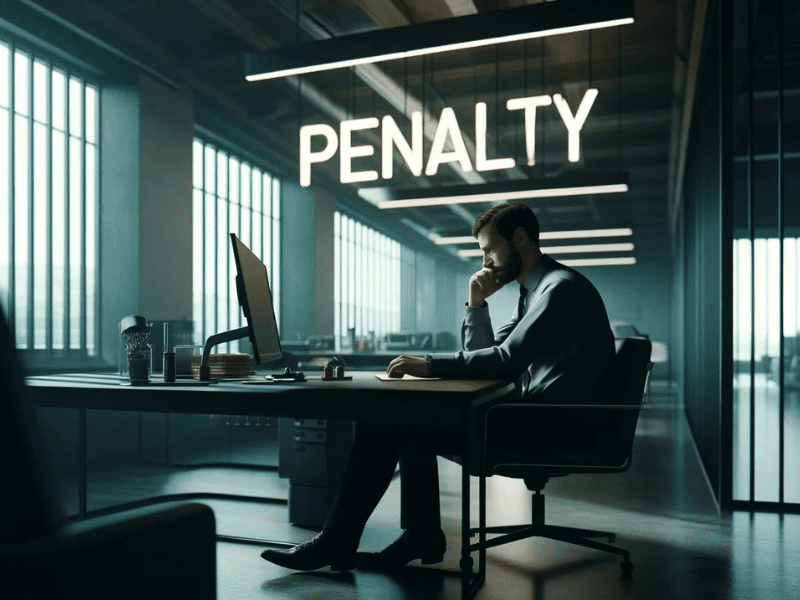
If you make any income from self employed activities, it’s important to declare earnings to HMRC for tax purposes. In line with this, unless the HMRC has directly asked you to complete a self-assessment, you will need to ensure you have notified them of chargeable income. Failing to do so can potentially result in penalties, which is highly important to keep in mind. Luckily, today, we’re looking briefly at what the penalties are for not reporting a tax liability. Hopefully, this will equip you with the knowledge you need to report taxes more appropriately.
Why Do I Need to Report a Tax Liability to HMRC?
There are several scenarios in which you may need to report a tax liability to HMRC. Perhaps the most common reason for this is when you take on a new source of income. In this case, you will need to let the HMRC know so that this income can be taxed accordingly.
There is no exact requirement when it comes to giving notice of liability to HMRC. As such, a simple notice will often suffice. Indeed, as per s.7 Taxes Management Act 1970 (TMA), there is no specific wording that must be used. However, keeping this brief can potentially put you at risk of getting caught out if an issue should arise with the notification, as experienced by Finola Owens.
Ms. Owens’ Case
Ms. Owens had requested her accountant to notify the HMRC of rental income for the 2016/2017 tax year, and this was done by the accountant in February 2018. The notice given was very brief, reading simply, “We are writing to give notice of liability to tax under TMA 1970, s 7(1) for tax year SA17.” After a drawn-out period of time, HMRC eventually replied requesting additional information in March 2019.
Unfortunately, in this particular case, several mistakes were made which led to a rather complex legal position. Notably, notifying HMRC of chargeability should be done by the 5th of October immediately following the tax year in question; as such, in this case, HMRC should have been notified by the 5th of October 2017. Instead, the accountant did not notify the HMRC until the following February, meaning the notification was already late. However, this was further compounded by HMRC’s delayed reply; by the time they replied in March 2019, it was almost two years after the tax year in question concluded.
Unfortunately, the lack of information provided by Ms Owens’ accountant in the notification letter would prove influential in this case. The First-Tier Tribunal ruled that the HMRC was correct to issue tax penalties to Ms. Owens. Due to the accountant not being forthcoming, delaying the already late situation. In this instance, if the information had been provided upfront, the ruling that was eventually made may not have occurred.
What If I Don’t Have Much Time to Notify?
If you need to notify HMRC of chargeable income, don’t panic. Ideally, you’ll want to leave enough time to provide all of the information HMRC might need. However, if that is likely to be difficult or impossible, your accountant can help you compile as much as possible; from there, you can potentially send additional information if required after.
How Can I Notify HMRC?
Perhaps the easiest way to notify HMRC that you have chargeable income is to register online. However, it is also possible to do so by phone or potentially by sending a letter. Aim to discuss this with your accountant if you need further support.
Always Get Professional Support if You Need Help With Notifying HMRC of Chargeable Income
If you think you might have chargeable income to declare, reaching out to your local “accountant near me” could help. Fortunately, our own professional accountants in Medway are proud to help with a wide array of tax cases. We have gone out of our way to ensure that our clients get the support they need for their taxes. So, if you’d like support and help with notifying HMRC in a timely and effective manner, contact us today.
Remember: even if you don’t have much time to notify HMRC before the 5th of October deadline, we can help. Our experts can help compile as much information as possible to submit your notification. In turn, this can help you ensure your taxes are being submitted appropriately and that HMRC has everything it needs.



